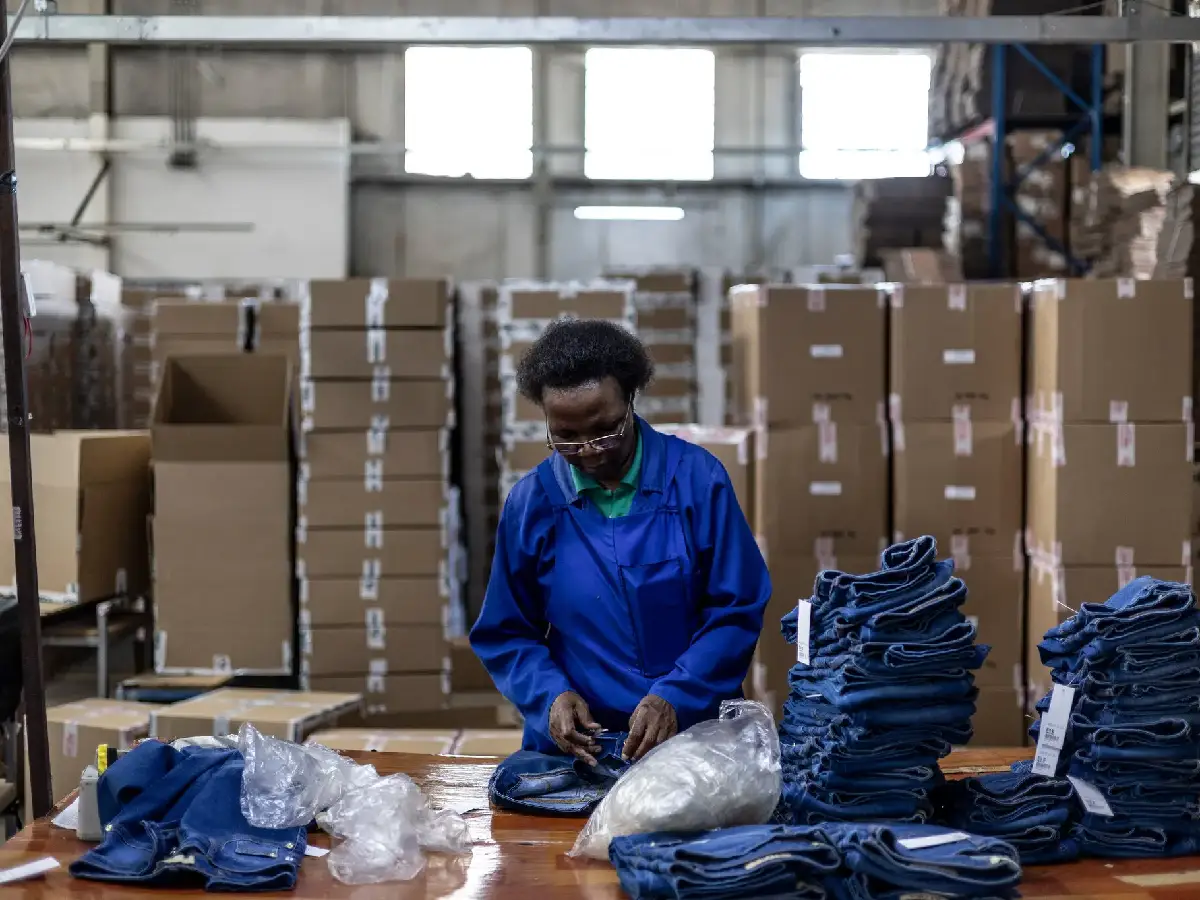The imposition of a dramatic 50 percent tariff by the United States on goods from Africa could have a severe economic impact, particularly on smaller nations like Lesotho. While the volume of goods Africa exports to the U.S. is relatively small on a global scale, the implications of such high tariffs are disproportionately large for countries heavily dependent on this trade.
Lesotho, a small, landlocked country encircled by South Africa, is one such nation where the economic repercussions could be significant. The country’s export sector, especially textiles and garments, which is a major employment source and economic driver, stands to suffer dramatically under the weight of these tariffs.
For Lesotho, the U.S. market is crucial. A considerable portion of its textile and apparel products are exported directly to the United States, benefiting from the African Growth and Opportunity Act (AGOA). This U.S. trade program provides sub-Saharan African countries with duty-free access to the U.S. market, supporting economic and political reforms in Africa. The potential shift in policy represented by a 50 percent tariff could severely undermine the benefits observed under AGOA, threatening jobs and income in Lesotho.
The effects of such tariffs extend beyond direct economic impact. They have the potential to disrupt the social fabric of communities dependent on export-led industries. In Lesotho, the garment sector employs an estimated 40,000 workers, many of whom are women. These jobs not only provide essential income but also contribute to social stability and development. Higher tariffs may lead to job losses, which would increase poverty rates and potentially lead to greater social unrest.
Moreover, the broader implications for Lesotho’s economy cannot be understated. The country already faces various challenges, such as high rates of HIV/AIDS, significant poverty, and limited economic diversification. The textile and apparel industry is one of the few sectors where Lesotho has managed to gain a competitive edge internationally. A 50 percent tariff could jeopardize this advantage, potentially setting back the country’s development progress significantly.
Further, the impact of such tariffs is not isolated to the economic sphere. They have geopolitical implications as well. Increasing tariffs can strain U.S.-Africa relations, making it more challenging for African nations to negotiate trade and aid agreements in the future. This scenario might push African countries to seek other trading partners, altering traditional alliances and trade patterns on the global stage.
The response to such an economic challenge must be multifaceted. Lesotho, like many other affected African nations, would need to explore alternative markets and perhaps diversify their economic bases further to reduce vulnerability to external shocks. There could also be a concerted push, both from African governments and international bodies, to negotiate these trade terms to more favorable conditions.
It is crucial for policymakers in both Africa and the United States to consider the broader repercussions of trade tariffs and to work towards fostering an environment that promotes sustainable economic growth and development. Discussions and negotiations should aim to reach a mutual agreement that considers the economic vulnerabilities of nations like Lesotho while balancing the trade objectives of the United States.
In summary, a 50 percent tariff on goods exported from African nations like Lesotho to the United States would have profound and far-reaching consequences. Such a move could decimate developing economies, threatening the livelihoods of thousands and potentially destabilizing entire regions. It is a stark reminder of how interconnected and sensitive our global economies are, and how policy decisions can reverberate far beyond their immediate geographic and economic contexts.










